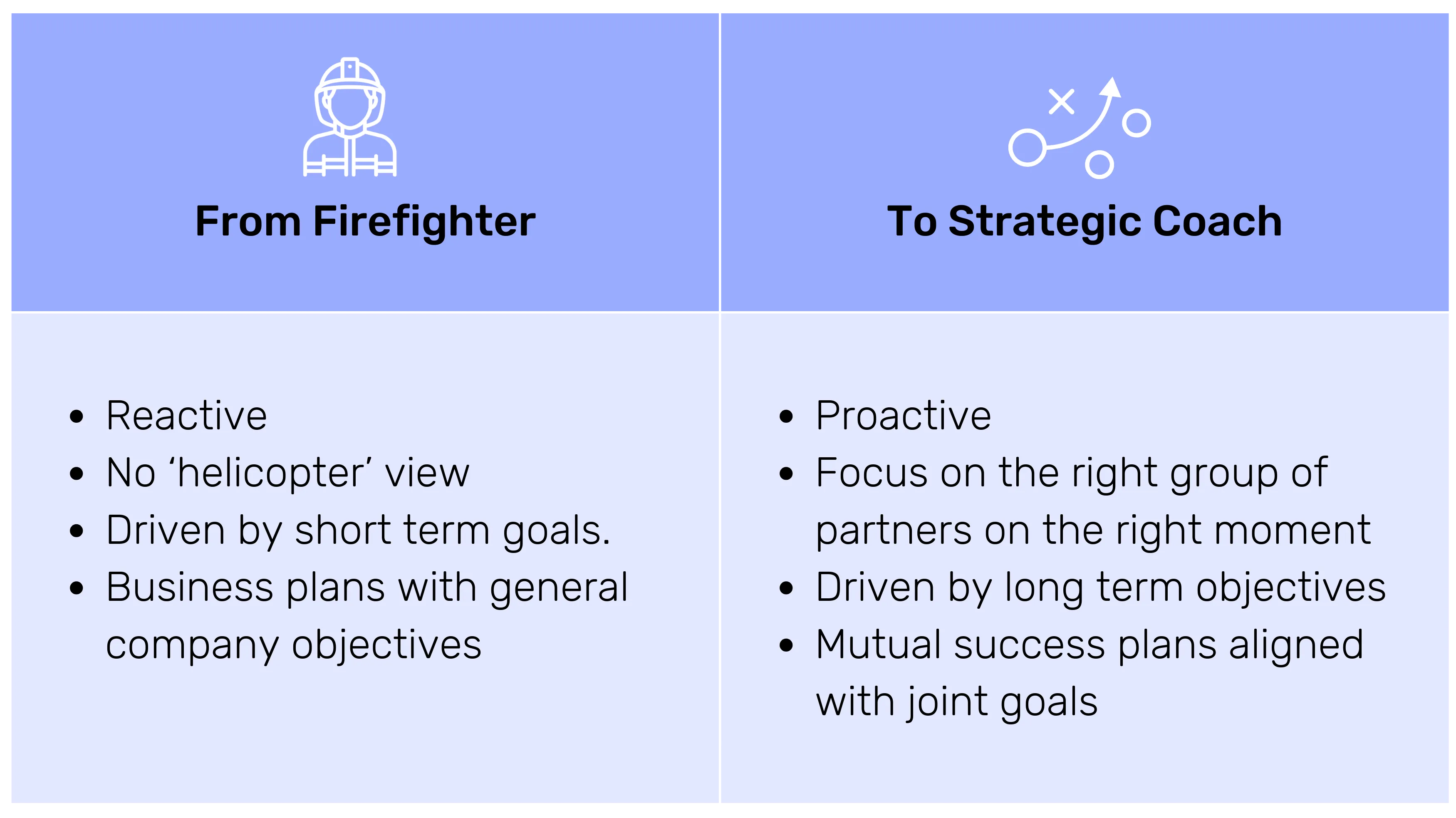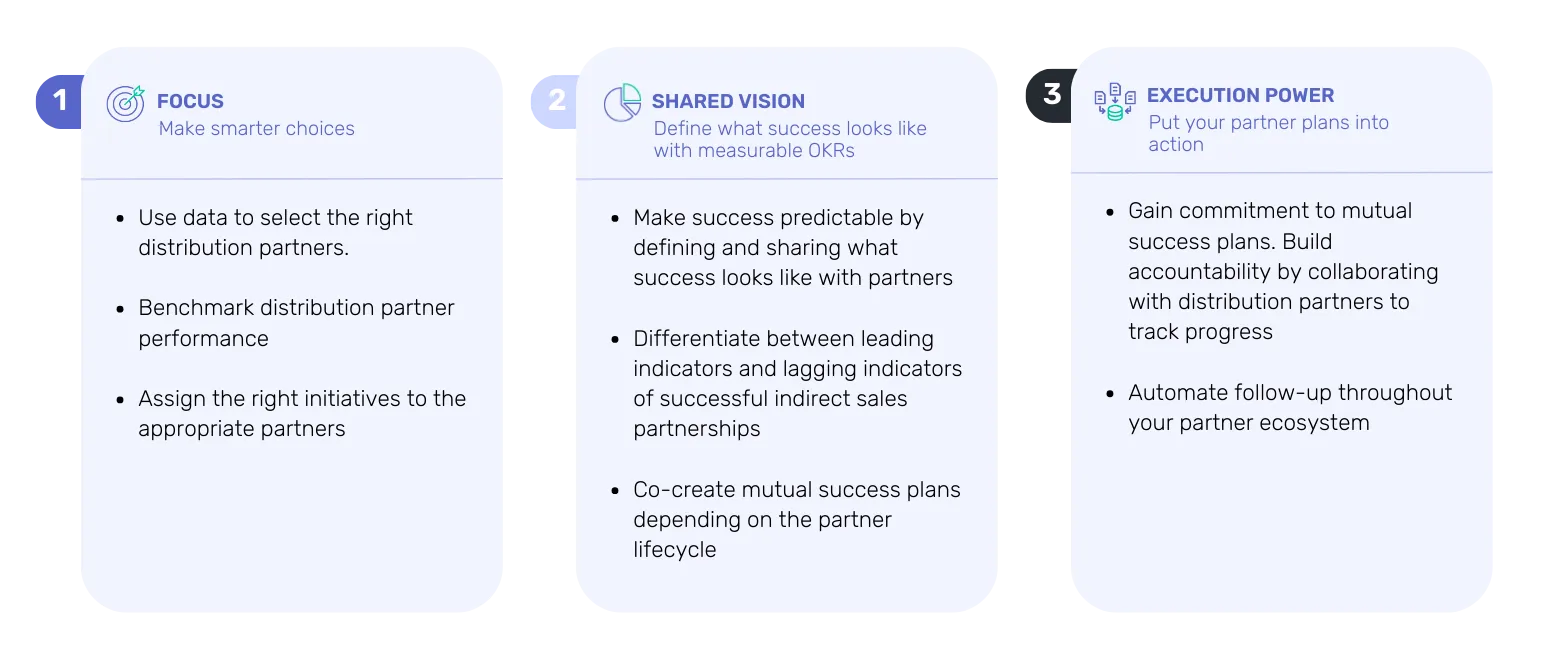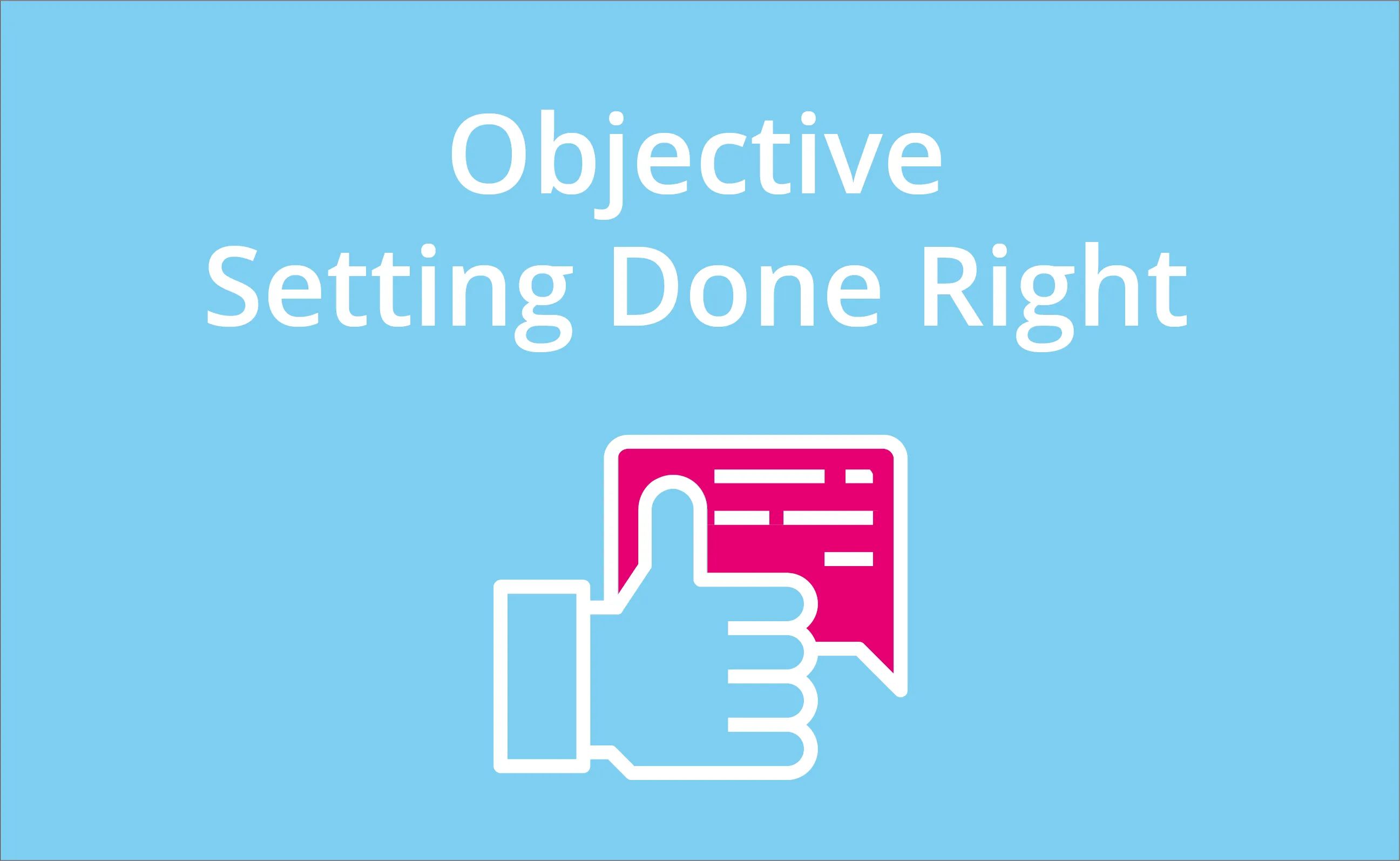
During a recent keynote session held with one of our respected insurance clients, our CEO provided further insights into the concept and changes within the partner operating model over different industries such as Information Technology, Telecommunications and Financial Services. The impact of the changing partner roles and the necessity for vendors to strategically support their partners is the most important takeaway.
Insurance organizations are trying to upgrade their account managers to strategic coaches. Why? Intermediaries within the insurance industry are evolving into a service model, and achieving this transformation requires the cultivation of specific capabilities. Because the operating model of partners changed, the way insurance providers collaborate with them does as well.
Rather than adopting a product-oriented approach, the session emphasized the necessity of shifting towards a more strategic and collaborative mindset.
Redefining the Role of a Partner Account Manager: From Firefighter to Strategic Coach
Allocating an excessive amount of attention to agents, brokers, or partners who are often demanding and vocal while neglecting your strategic partners who may hold untapped potential is not the right focus.
This is akin to a firefighter rushing to extinguish fires in the noisiest and most chaotic areas rather than prioritizing those that pose the greatest danger. Much like a fire commander who oversees the entire situation strategically, analyzing potential fire expansion, account managers should step back and identify strategic agents and brokers with significant growth potential instead of solely addressing immediate client demands.

Learning 1: The Importance of Partner Selection
Focusing on the right partners is key in your partner operating model. Making the right choices require:
- Using the right data to select the right distribution partners
- Benchmarking this data with partner performance
- Assigning the right initiatives to the right partners (based on the data insights)
When selecting which agents and brokers to focus on, revenue share and potential alone may not suffice. While revenue is undoubtedly a crucial metric, evaluating factors such as a broker's willingness to collaborate, digital presence, office capacity, and history with your end clients can provide deeper insights into the untapped potential of your indirect sales channel.
It's important for insurance organizations to acknowledge the potential friction between long-term strategic metrics and short-term profits for account managers. Prioritizing the development of brokers' potential and digital presence might be more vital in the long term, even if it means foregoing short-term monetary incentives.
Recognizing and addressing these frictions when developing your distribution strategy and fostering a shared vision with agents and brokers is pivotal.

Learning 2: Building Trust and Partner Commitment
The role of a partner account manager is evolving. Traditionally, partner account managers focused on building relationships through face-to-face interactions and unstructured reporting.
However, the digital era has disrupted the industry, emphasizing data-driven approaches.
During our inspiration session, we evaluated the collaboration with brokers using Patrick Lencioni's five criteria for business relationship.
The results indicated that account managers identified engagement and the willingness to turn discussed agreements into commitments as the two most significant challenges.
In this evolving landscape, how can you build trust and commitment with brokers, agents, and partners?
Three steps are crucial:
- Listen to your partner’s goals and objectives.
- Identify the partner’s needs.
- Reflect on the best possible solutions.
Connecting the mutual success plan with your partner's goals will make the partnership more successful. Moreover, don't shy away from difficult and data-driven conversations with your partners. Embracing these conversations is key to successful relationship-building.

Waiting passively for the results to come in is counterproductive. Building a trusted relationship requires actively engaging with your brokers and agents, understanding their goals and businesses, and being authentic and comfortable with complex discussions.
Learning 3: The Role of Technology
Technology plays a pivotal role in supporting the process of creating trust and accountability. However, it cannot entirely replace the need for face-to-face interactions and relationship-building outside of training sessions. Personal engagement remains essential to maximize impact.
Technology's role is to facilitate the transformation from a firefighter mentality to that of a strategic coach. Mutual Success Planning technology, for instance, offers a comprehensive view of all brokers and their data, aiding in balancing long-term strategic goals with daily operational work for brokers and agents.
In conclusion, the inspirational session conducted by Qollabi shed light on the critical transformation required in the insurance industry. Account managers must evolve into strategic coaches, focusing on broker selection, building trust and commitment, and harnessing technology to achieve long-term success in this ever-changing landscape.



